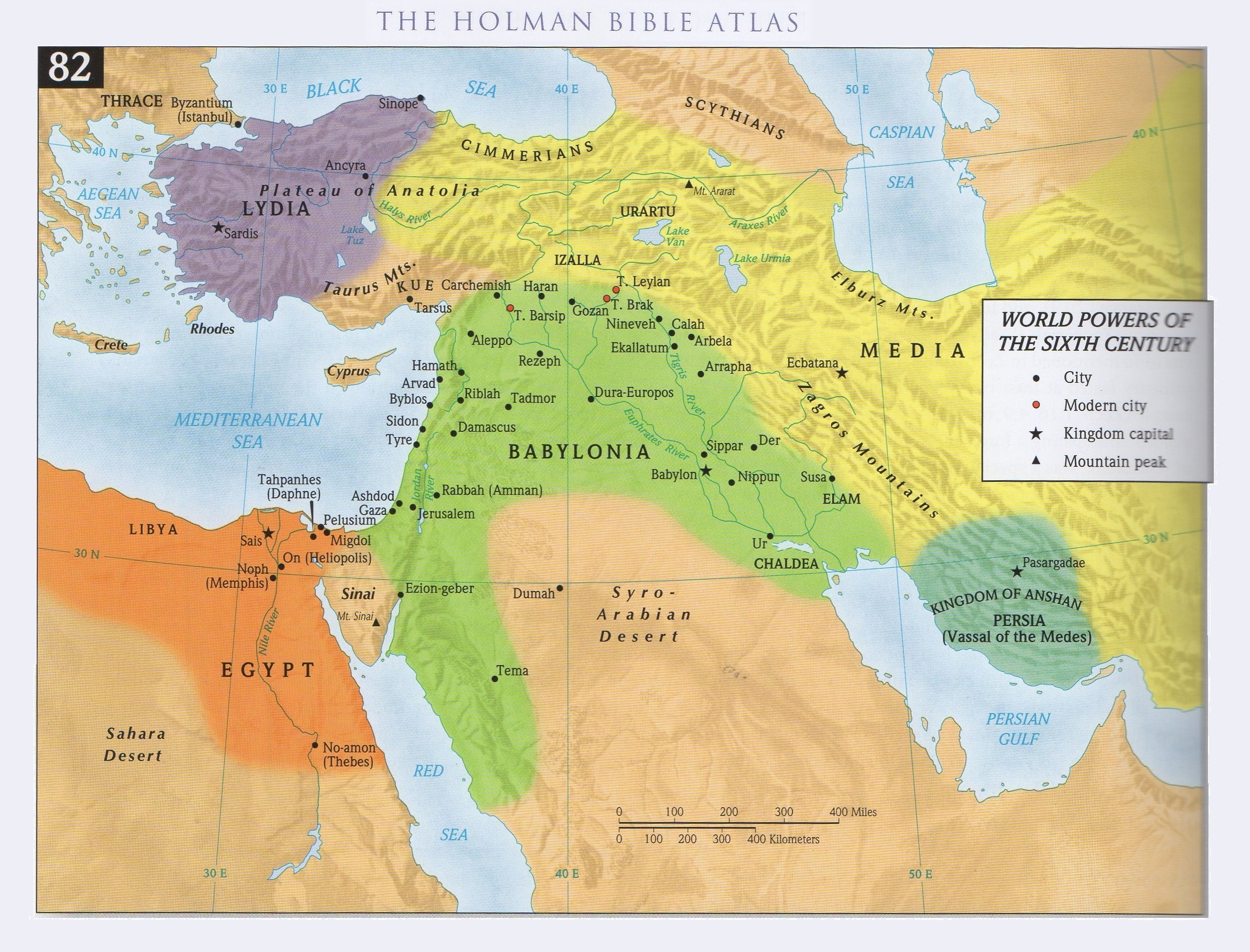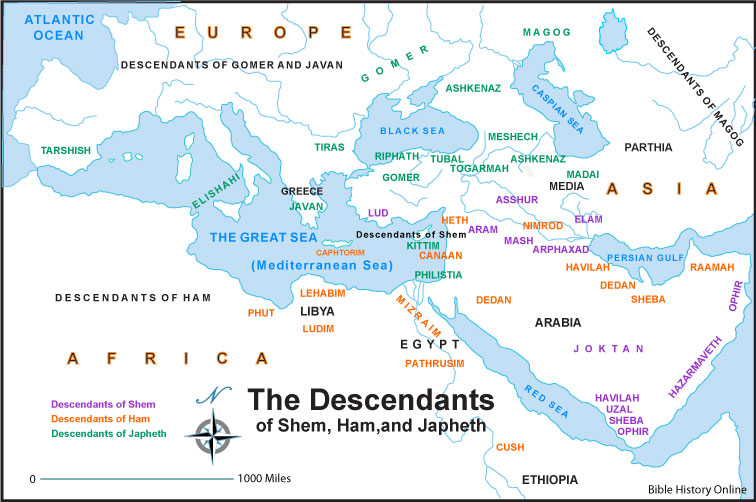Prominent descendants: Elamites, Chaldeans, Arameans, and Babylonians
Genesis 10:21-31 & 1 Chronicles 1:5-7 stated the descendants of 2 of the above sons:
Aram > Uz, Hul, Gether and Meshech
Arphaxad > Shelah > Eber (Abraham came from this line)
Eber > Peleg and Joktan
Joktan > Almodad, Sheleph, Hazarmaveth, Jerah, Hadoram, Uzal, Diklah, Obal, Abimael, Sheba, Ophir, Havilah and Jobab
Shem was born in Genesis 5:32. His family line was well documented since Judaism came from the descendants of Abraham (originally called Abram). Several references in the Bible refer to the "God of Abraham", including Genesis 32:9 which named further patriarchs in the Semitic lineage. Since Arphaxad was clearly Semitic, and his ancestors were stated as Chaldeans, we can infer that Chaldeans were also Semitic. Genesis 11:10-32 also lists Shem's family line, and stated that Haran (one of Abram's brothers) was born and died in Chaldea in verse 28.
Interestingly enough, numerous Arab lineages also derived from Semitic stock as evidenced in Joktan's offspring as well as through Ishamel (Hagar's son from Abraham before Isaac was conceived) and the 2 sons of Moses when he fled from Egypt. Both books of Chronicles trace Levite lines from Aaron (Moses' brother) when his sons were dedicated as priests to God.
Two of Joktan's descendants, Havliah and Ophir had places in the Bible named after them. The map at the bottom suggests they settled in the Arabian peninsula.
After Joshua led the Israelites into Canaan, eventually a kingdom was formed that was led by Saul, David and his son, Solomon. Discord split the kingdom in two. The Northern kingdom had 10 of 12 tribes of Israel allied with Saul's family and called itself Israel. The Southern kingdom was led by the tribe of Judah with one other tribe residing in that region. They called themselves Judah.
While their exact lineages aren't stated, both Assyrians (believed to have come from Asshur) and Babylonians were said to be Semitic. Babylonians were stated as Chaldeans in Ezekiel 12:13 and 23:15-16 as well as Ezra 5:12. Quite possibly, Assyrians had both Semitic & Hamite descent since Genesis 10:8-12 stated Ham's son, Cush, built several towns in Mesopotamia.
Centuries later, the man who raised Jesus Christ as his own son came from a Semitic family line.

Shem's descendants mostly remained in the area of Mesopotamia. The Elamites resided in modern-day Iran west of the Persians. Elamites appeared in Genesis 14 during Abram's rescue of his nephew Lot, then later helped the Babylonians break free of the Assyrians. Arameans held such a presence in the region that Persians adopted their spoken language. Aramaic, or at least a form of Aramaic, is still spoken by Kurds today.

The area where modern-day Iraq and Iran lie was quite a turbulent place as several groups of people fought over the land. Assyrians rose to power, only to be overrun by the Babylonians. In time, the Medes had a brief period of control before the Persians held power until Alexander the Great led the Greeks to the edge of India. After Alexander died, the Romans expanded their influence to the same eastern extent but additionally took over much of Europe, too.

As the map indicates, Joktan fathered many people in the Arab peninsula while Arphaxad, the ancestor of Abraham, may have fathered the Chaldeans.